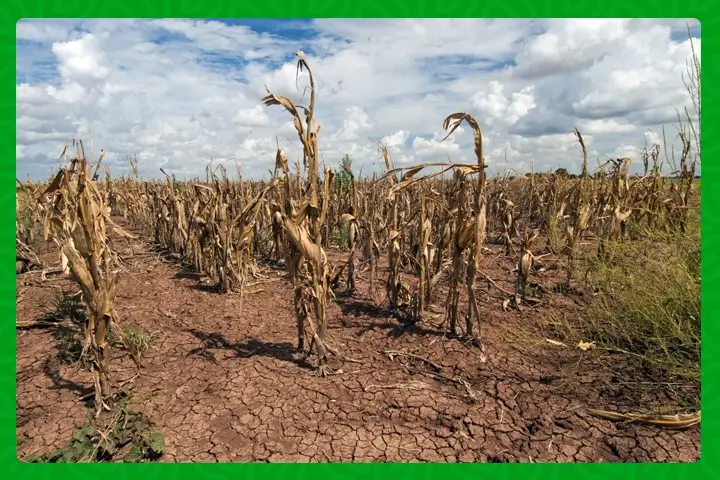
As the sun blazes relentlessly over Zimbabwe’s parched landscape, a grim reality unfolds for farmers across the nation. What should be fields teeming with life have transformed into desolate expanses of despair, with crops wilting under the merciless grip of drought. This feature delves into the profound challenges faced by Zimbabwean farmers as they battle against nature’s cruel onslaught.
A Nation in Distress:
In Zvimba and beyond, once-vibrant maize fields now stand as solemn testaments to the unforgiving drought. The absence of rain, once a life-giving elixir, has plunged communities into dire circumstances. Muchineripi Tsunga, a seasoned farmer, echoes the sentiments of many as she laments one of the worst droughts in her two decades of farming. Her concerns are shared by millions whose livelihoods depend on agriculture, raising fears of a fragile food system on the brink of collapse.
The Human Toll:
The World Food Programme’s warning of imminent hunger for nearly eight million Zimbabweans underscores the severity of the crisis. Minister Anxious Masuka acknowledges the inevitability of drought’s grasp, highlighting the dire situation across the country. Reports from the Famine Early Warning Systems Networks (FewsNet) paint a grim picture, with economic repercussions looming large over Zimbabwe and neighboring Malawi. Beyond immediate hunger, the drought’s ripple effects threaten job security, export revenues, and economic stability.
Regional Ramifications:
The impact of the El Niño-induced drought extends far beyond individual farms, casting a shadow over the entire southern African region. Madeline Murphree of FewsNet warns of below-average harvests and heightened food assistance needs, painting a bleak outlook for millions. With deficit-producing areas bearing the brunt of the crisis, vulnerable populations face disproportionate hardships. Children, in particular, are at risk of enduring long-term consequences from malnutrition, further exacerbating the humanitarian crisis.
Urgent Call to Action:
In the face of adversity, urgent action is imperative. Murphree urges governments, donors, and humanitarian partners to mobilize resources swiftly to mitigate the impacts of the drought and safeguard vulnerable populations. The El Niño event looms as a formidable threat to food security and livelihoods in Southern Africa, demanding collective efforts to avert a humanitarian catastrophe.
As Zimbabwean farmers wrestle with the relentless drought, their plight serves as a poignant reminder of the fragility of agricultural livelihoods in the face of climate extremes. With millions at risk of hunger and economic instability, the time for action is now. Through concerted efforts and proactive interventions, there remains hope of alleviating the suffering inflicted by nature’s cruel grip, and forging a path towards resilience and recovery.
Original article was written By Problem Masau
Stay updated with the latest farming tips and agriculture industry news from Africa by subscribing to our newsletter. Don’t miss out on valuable insights and updates. Follow us on Twitter, LinkedIn, and Facebook to join our farming community and stay connected with us.



















